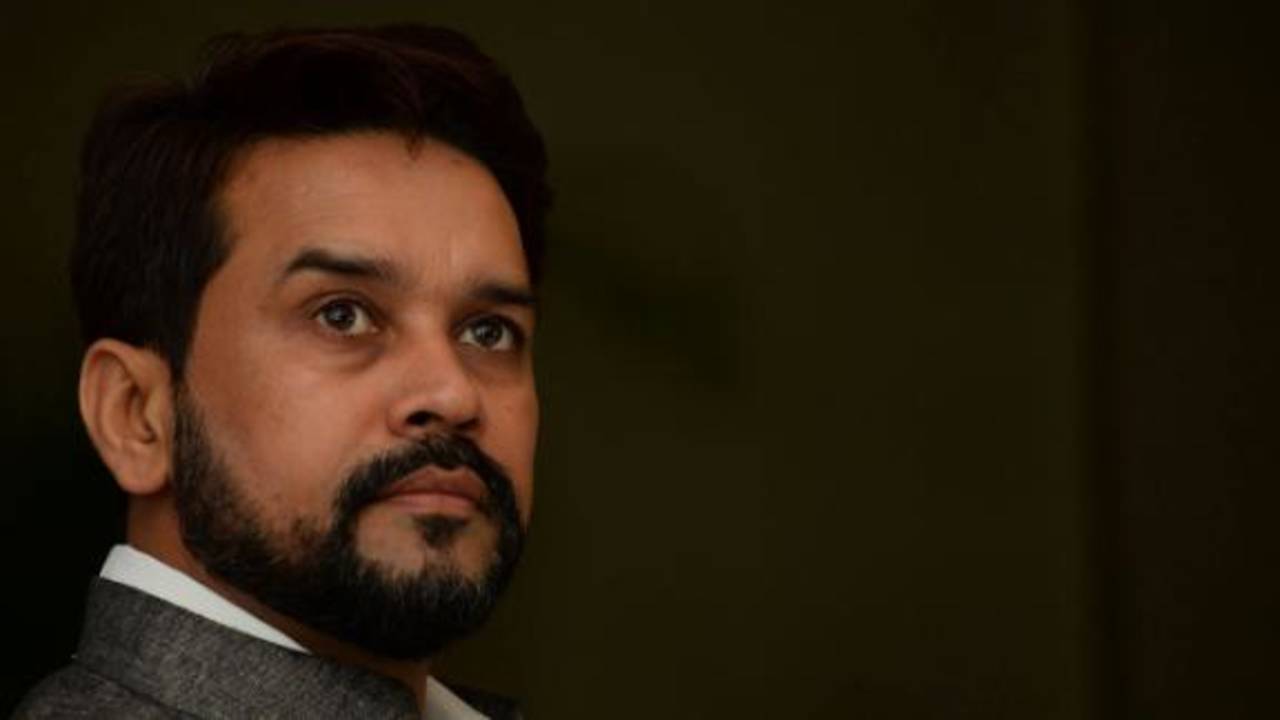Supreme Court reserves order as BCCI seeks more time
The Supreme Court of India has reserved its order regarding the Lodha Committee's status report, which had recommended that the BCCI office bearers be "superseded"
ESPNcricinfo staff
17-Oct-2016
The Supreme Court of India has reserved its order regarding the Lodha Committee's status report, which had recommended that the BCCI office bearers be "superseded" and a panel of administrators be appointed to implement the court-approved recommendations.
The hearing began at 2pm and lasted two hours, after which the judges informed the parties that they were reserving the order, pending further deliberation. It could be passed any time in the coming week.
On Monday the court heard from amicus curiae Gopal Subramanium that the BCCI's "consistent attitude of defiance" warranted the appointment of a panel of administrators. The board's counsel Kapil Sibal, however, asked for more time to "persuade" the state units to accept the recommendations, but also suggested that in certain cases the Lodha Committee was going beyond the original judgement.
The court observed that replacing the BCCI's office bearers would be an "extreme measure" but did not rule it out, and also asked Subramanium for other methods that could be used. Subramanium asked for all funding to be stopped to states that refused to comply, that office bearers disqualified under the Lodha Committee's recommendations be removed immediately, and that future BCCI contracts go through the Lodha Committee. The next major contract is for the IPL broadcast rights.
When the court asked if Subramanium meant the BCCI could do whatever it wanted "through the approval of the Committee until such time that the reforms are implemented", the amicus curiae offered no objection. Another option discussed was to "appoint a committee or an officer" who reports to the Lodha Committee.
The BCCI's counsel continued to argue that constitutional changes could only be made to the board through a two-thirds majority of its members. "We have not defied any judgement," Sibal said in response to the court. "We are just finding some of the recommendations difficult to implement."
The BCCI president Anurag Thakur said that the board needed more time. "You need 3/4th majority to adopt these recommendations. We have done our duty to go back to the state associations and they have to take a call on that. If you don't have 3/4th majority, you cannot adopt these recommendations," he said after the hearing. "Right now there is more confusion in the state associations on how to implement the recommendations, I think we need more clarity."
The board had cited the unwillingness of its state associations as the primary reason for not accepting the Lodha Committee's recommendations in totality. The contentious recommendations were the one-state-one-vote policy, the nine-year cap on administrative careers, the cooling-off period, and a 70-year age cap.
The court asked the BCCI's counsel if he could give an undertaking of what recommendations had been implemented, and what the BCCI planned to implement and by when. Sibal responded affirmatively and said he would also list "the ones that they cannot implement and what problems we are facing in their implementation".
The court asked why the BCCI had not done so when the Lodha Committee had provided it various opportunities to argue its case. Sibal argued that the Lodha Committee had begun to pass directions that were not part of the original judgement. According to him the committee had said that those BCCI officials who were disqualified on the basis of time served could not represent the board at the ICC either. This could not be independently verified.
Subramanium had pointed out the inconsistencies in the affidavits provided by Thakur and the BCCI's general manager games and development Ratnakar Shetty. The affidavits were in regard to whether Thakur had asked the ICC for a letter stating that the court order was tantamount to government interference in the BCCI and provided grounds for disqualification from the ICC.
"I have never seen anyone or any organisation so stoically, disdainfully blocking a Supreme Court judgement being carried out," Subramanium said. "The court should consider using the powers it has now to take this matter to its logical conclusion."
Subramnium said that during its last hearing the court had given the BCCI and its state association ten days to fall in line. "Everybody wants to give the board a fair opportunity," he said. "The fact is that BCCI has not produced a single affidavit of compliance. Less said about their interviews in the media the better."
